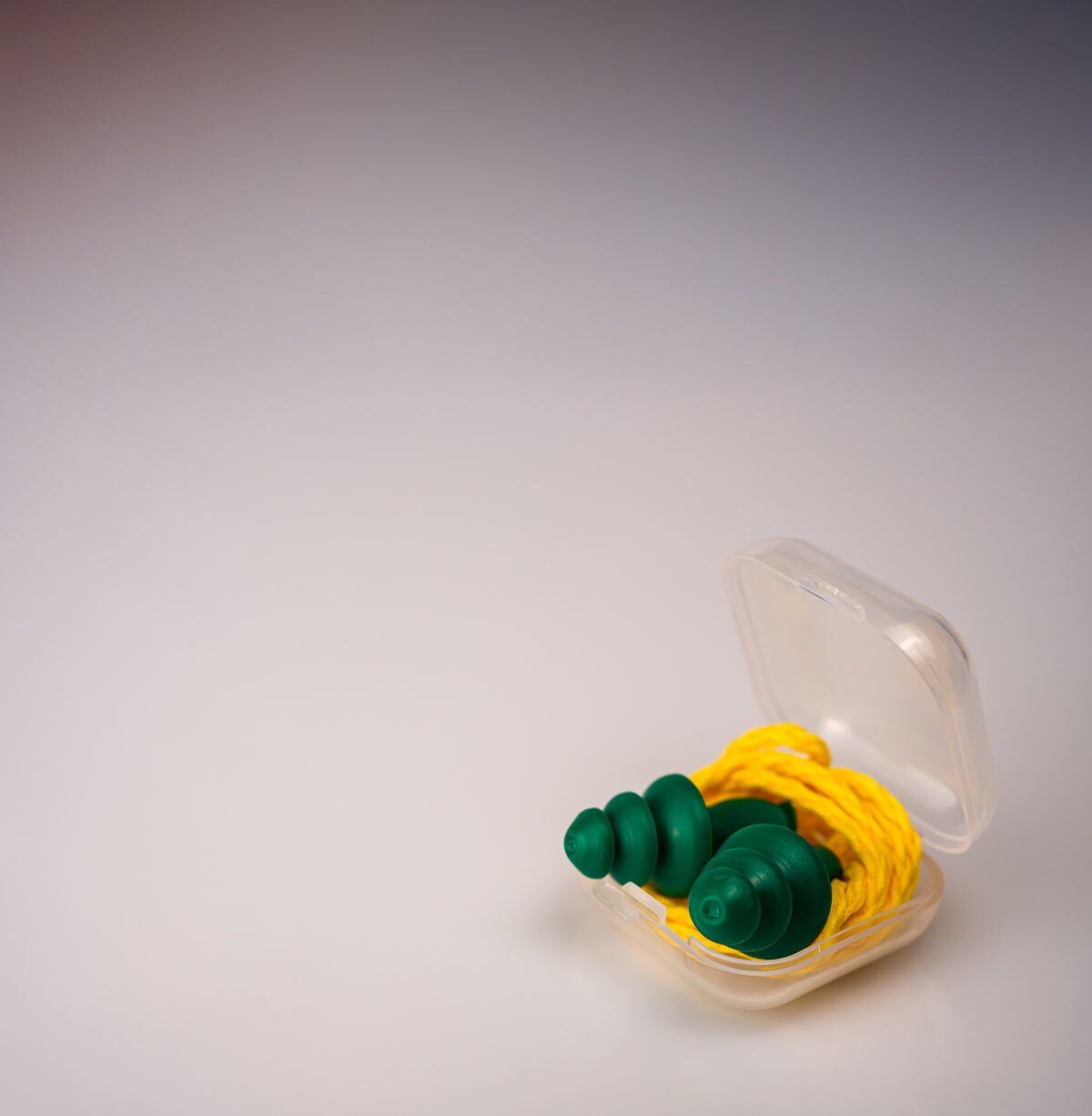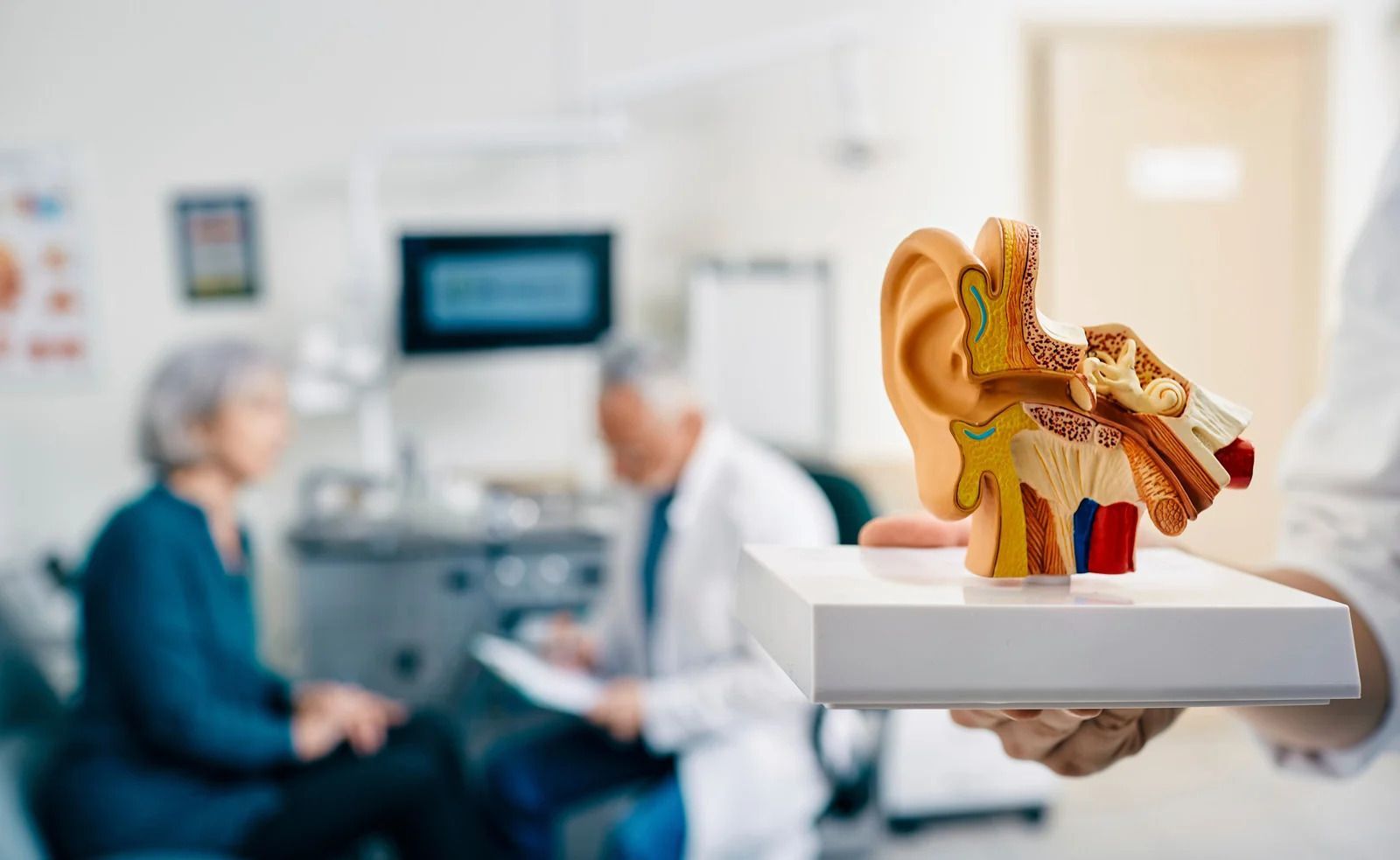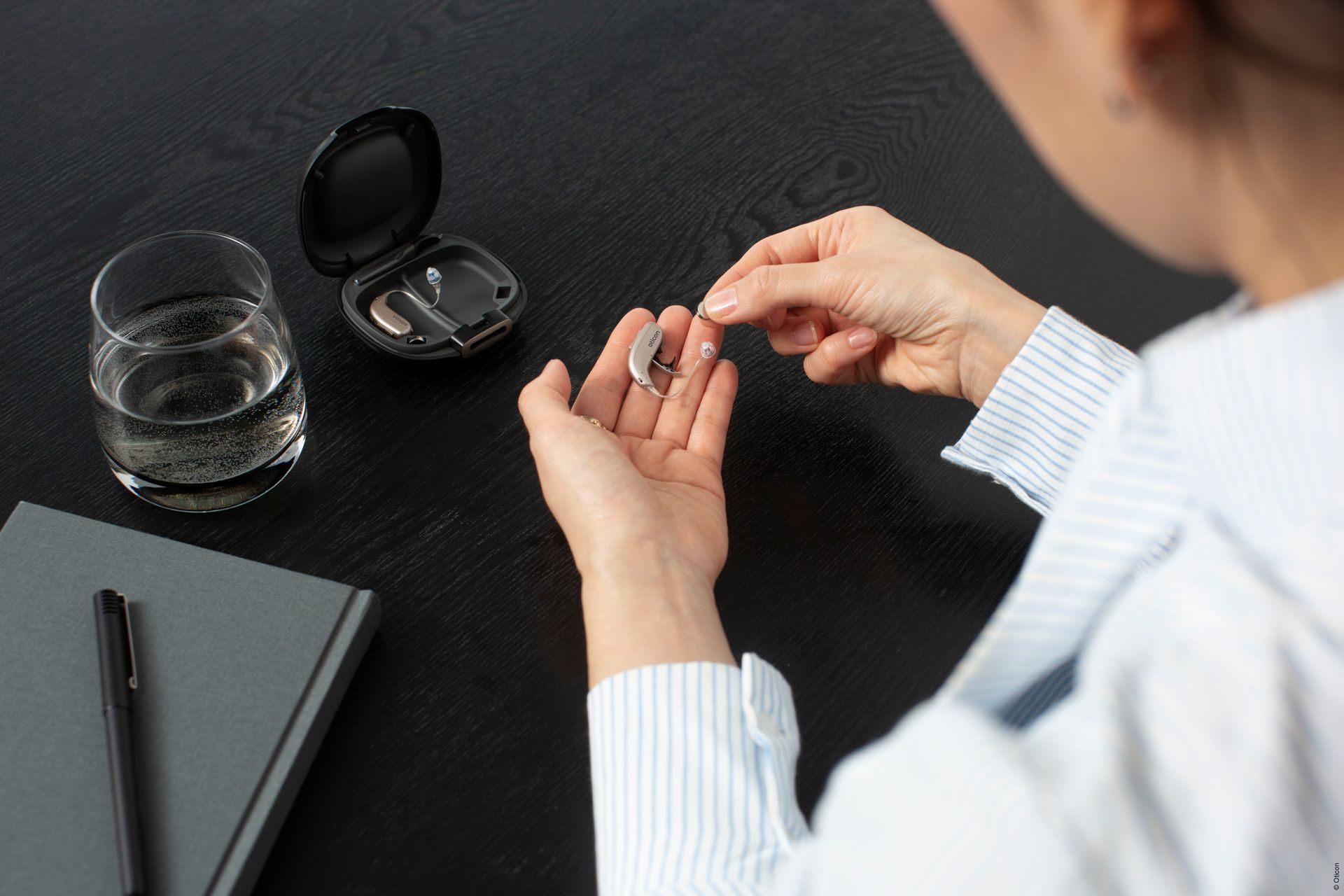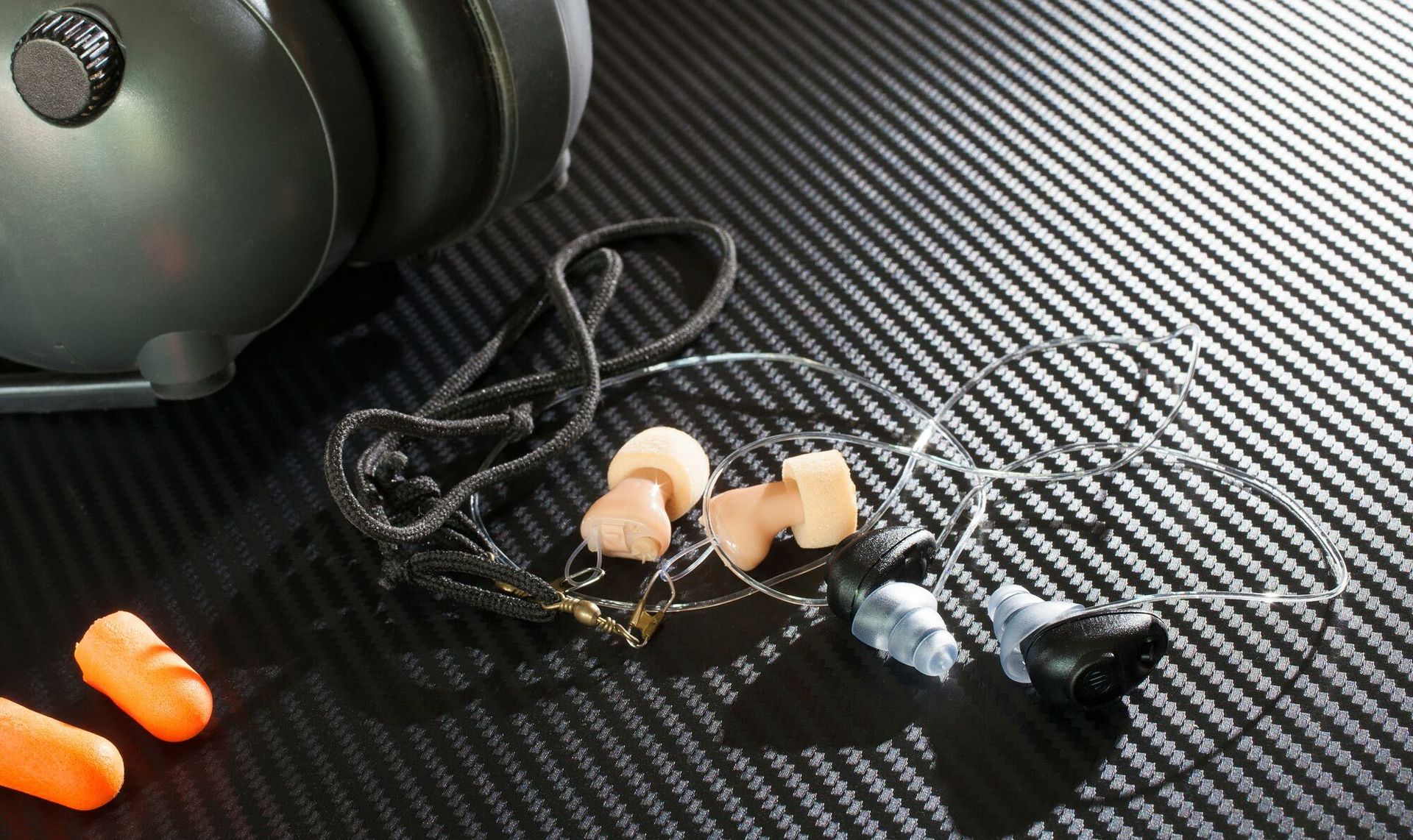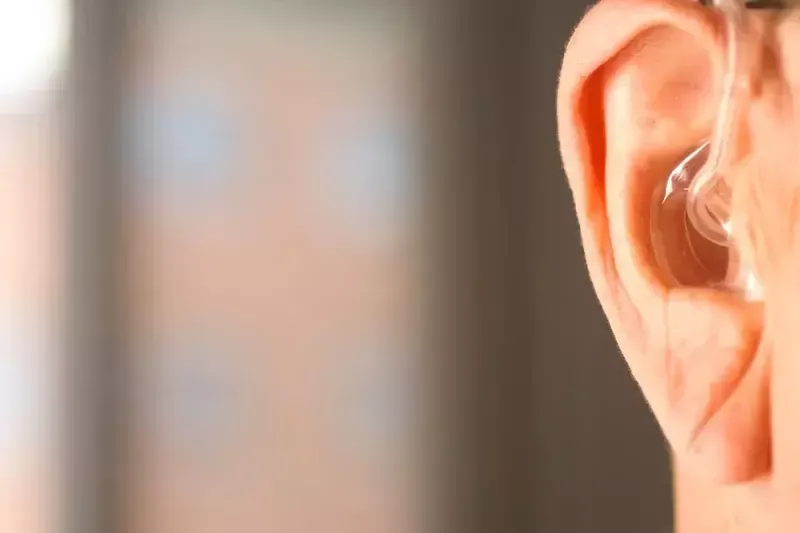Benefits of Proper Hearing Aid Fitting
Professional hearing aid fitting ensures the devices match the wearers and their hearing challenges

Proper hearing aid fittings are essential to the success of new devices. Through precise adjustments and verification, we ensure the hearing aids match your ears and – more importantly – the hearing challenges you experience.
At Audiology First, we strive to go beyond the norm in everything we do. Our hearing tests go deeper to collect as much information as we can about the state of your hearing. And our hearing aid fittings use advanced measurements and evidence based methods to confirm the devices are working as expected.
Why Hearing Aid Fitting is Essential
Hearing aid fitting is the process of matching the devices to the wearer. This includes both the physical fit and the programming of the hearing aids. The closer the devices match the individual hearing needs of the wearer, the better the hearing aids will perform.
Ensure hearing aids are properly programmed
When your hearing aids arrive at our Lethbridge hearing clinic, they are unprogrammed and set to factory defaults. We take the time to rigorously test each pair of hearing aids for quality control before programming even takes place. We will then pre-program the hearing aids from your hearing test.
Optimize any advanced features
Hearing aids have advanced features to seamlessly adapt to different scenarios and environments. Many of these features are automated and leverage the innovative processing power of modern hearing aids, but your audiologist can adjust various thresholds and settings to match the features to the situations where you appreciate better support with your hearing.
What to Expect From a Hearing Aid Fitting Appointment
The goal of your hearing aid fitting appointment is to match new hearing aids with your hearing loss prescription. We use the results from your hearing test and then perform various verification assessments to confirm the settings match the desired output.
When you arrive for your appointment, your hearing aids will be programmed according to your hearing profile. Your clinician will check the hearing aids for their physical fit and comfort, and then we will ask you to wear your devices as we complete various tests and adjustments.
Throughout your appointment, we will explain what we are adjusting and what it means for your daily life with hearing aids. Of course, we are available to answer any of your questions about wearing and maintaining your hearing aids.
Test your hearing aids while you wear them
During your hearing aid fitting appointment, we will complete a series of tests called "real-ear measurements." These tests will evaluate their performance while you are wearing them.
Everyone's ears are unique. Differences in ear canal size and shape impact how people hear sounds, so real ear measurements provide accurate data from a realistic setting.
To perform the measurements, a miniature microphone will be placed in your ear between the hearing aid and eardrum. We can use the microphone to measure the output of the hearing aids when they are in your ear.
Some of the benefits of real-ear measurements include:
- Better match between your hearing prescription and hearing aids
- Improved comfort
- Immediate adjustments based on real sound.
- Improved hearing aid performance
Real ear measurements are an extra step that doesn't happen at every hearing centre. It's often assumed that the initial programming is correct if it matches the results from a hearing test. But in reality, the output may not be accurate when it is operating within an ear, and it may not be comfortable for the wearer.
Make Sure Your Hearing Aids Are Properly Fitted
All new hearing aids at Audiology First are professionally fitted using advanced testing and careful attention from your audiologist. It is one of the top success factors in hearing aids, so it is well worth the additional step.
If you have hearing aids but have never heard of real-ear measurements, book an appointment with us today. We can review the programming of your devices through advanced testing like real ear measurements.
If you don't have hearing aids, see what to expect from a hearing test. At Audiology First, we always go a step further to improve the success of your hearing aids.

